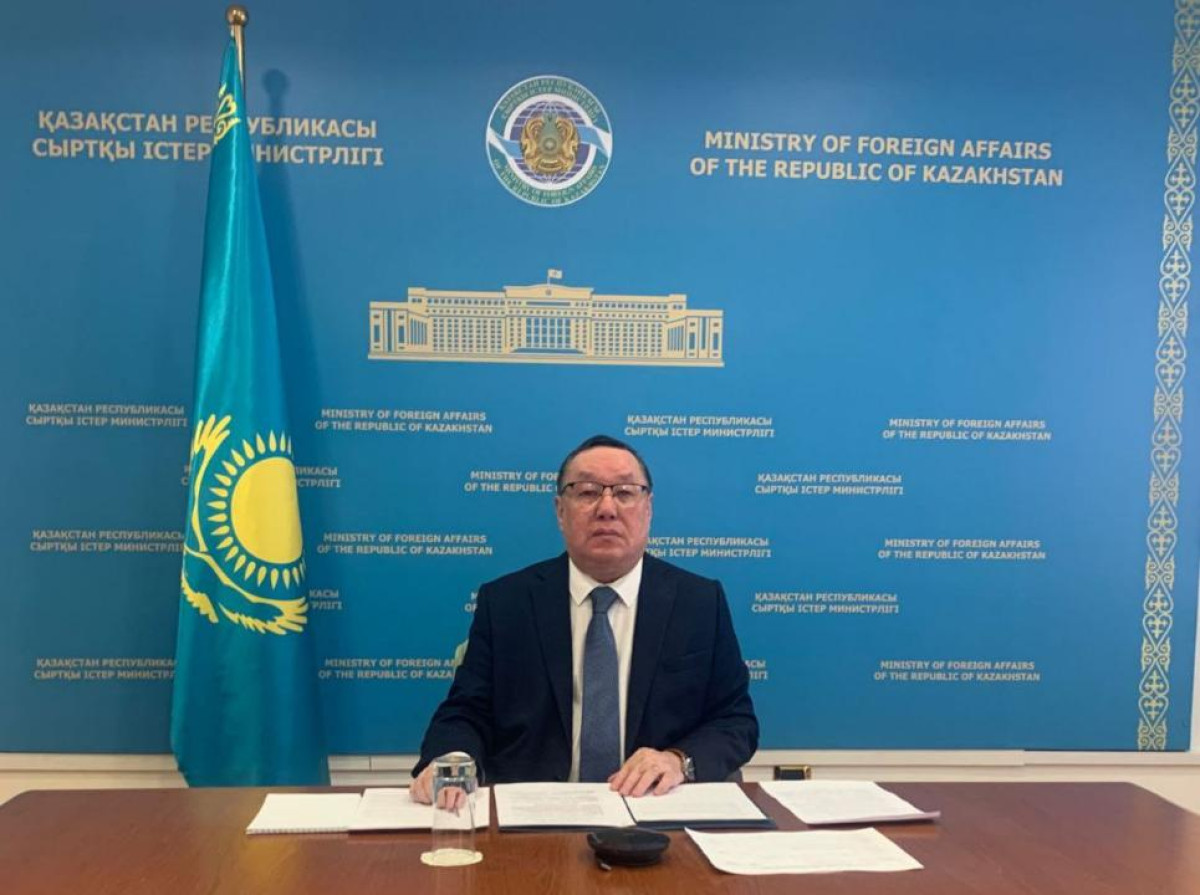Protection of rights of persons with disabilities and women's participation in state affairs discussed at Kazakh FM

At a regular meeting of the Dialogue Platform on Human Dimension Consultative and Advisory Body under the Ministry of Foreign Affairs of Kazakhstan, the preparation for the presentation of Kazakhstan's country report on the rights of persons with disabilities, as well as the participation of women, including those with disabilities, in the management of state affairs, was discussed, El.kz cites MFA.
The event was chaired by Usen Suleimen, Ambassador-at-Large of Kazakhstan’s Ministry of Foreign Affairs. In his opening remarks, he stressed that the topic of protecting the rights of the disabled remains to be an acute and worrying one for society, and today's meeting of the dialogue platform is a good opportunity to compare notes between the state authorities and the civil sector.
The representative of the Ministry of Labor and Social Protection of the Population of Kazakhstan acted as a speaker on this issue from the side of state bodies, highlighting the work on improving national legislation and reforming the Ministry in the field of protecting the rights of people with disabilities.
Lyazzat Kaltayeva, the deputy of the Senate of the Parliament of Kazakhstan drew the attention of the participants to the already implemented initiatives of the Head of State, within the framework of which a quota for people with disabilities has been introduced in the country when they are nominated for elected positions. Kaltayeva informed that a new social code is being developed with the direct participation of representatives of people with disabilities. The government is studying scrupulously alternative reports of the civil sector in the field of protecting the rights of persons with disabilities. The Senator also noted the need to introduce an indicative approach to the preparation of both the national and alternative reports. At the same time, assessments should be based on uniform criteria.
The representative of the Azamat Aleueti Foundation made a thesis about the Foundation's participation in the preparation of an alternative report.
The Ombudsperson for Children's Rights in her speeches focused on the need for quality medical care and expansion of development programs for children with disabilities. In her opinion, the percentage of people with disabilities in adulthood can be significantly reduced through the treatment of diseases in childhood.
The second issue on the agenda was the discussion of the participation of women, including those with disabilities, in the management of state affairs.
The representative of the Kadyr Kasiet Public Association focused the attention of the meeting participants on the need to eliminate inequality and discrimination against women, strengthen measures to support women in business, and also recommended that the Ministry of Foreign Affairs and relevant government agencies quarterly post on websites about the measures taken and achieved on initiatives in the field of human rights.
As part of the third item on the agenda of the meeting Musagali Dauylov, a civil activist, visually impaired made a detailed report on the problem of the lack of speech synthesis of the state language in Kazakhstan on government Internet resources. The absence of this technology, in his opinion, hinders the exercise by persons with disabilities of civil, political, socio-economic and cultural rights and fundamental freedoms, including freedom of expression and belief, as well as the freedom to seek, receive and impart information. Dauylov's recommendations were unanimously supported by the members of the Dialogue Platform and recommended for further study through the relevant state bodies of the Republic of Kazakhstan.
As part of the subsequent discussion, which was open and productive, the participants presented a large number of specific proposals and methods for implementing reforms in the areas under discussion.
At the end of the event, Ambassador Suleimen thanked the participants and called to continue the active joint work of all branches of government together with the civil sector to further strengthen the system of human rights protection in our country.
The session was traditionally attended by members of the Parliament, the Secretary of the Presidential Commission for Human Rights, representatives of the Supreme Court, the Constitutional Council, the Office of the Commissioner for Human Rights, interested ministries, Kazakh human rights NGOs, as well as guests of the platform - representatives of international partners, including the UN Development Program, OSCE, the European Union, the U.S. and Canadian Embassies in Astana, and the USAID.
 Subscribe to our Telegram channel and be the first to know the news!
Subscribe to our Telegram channel and be the first to know the news!